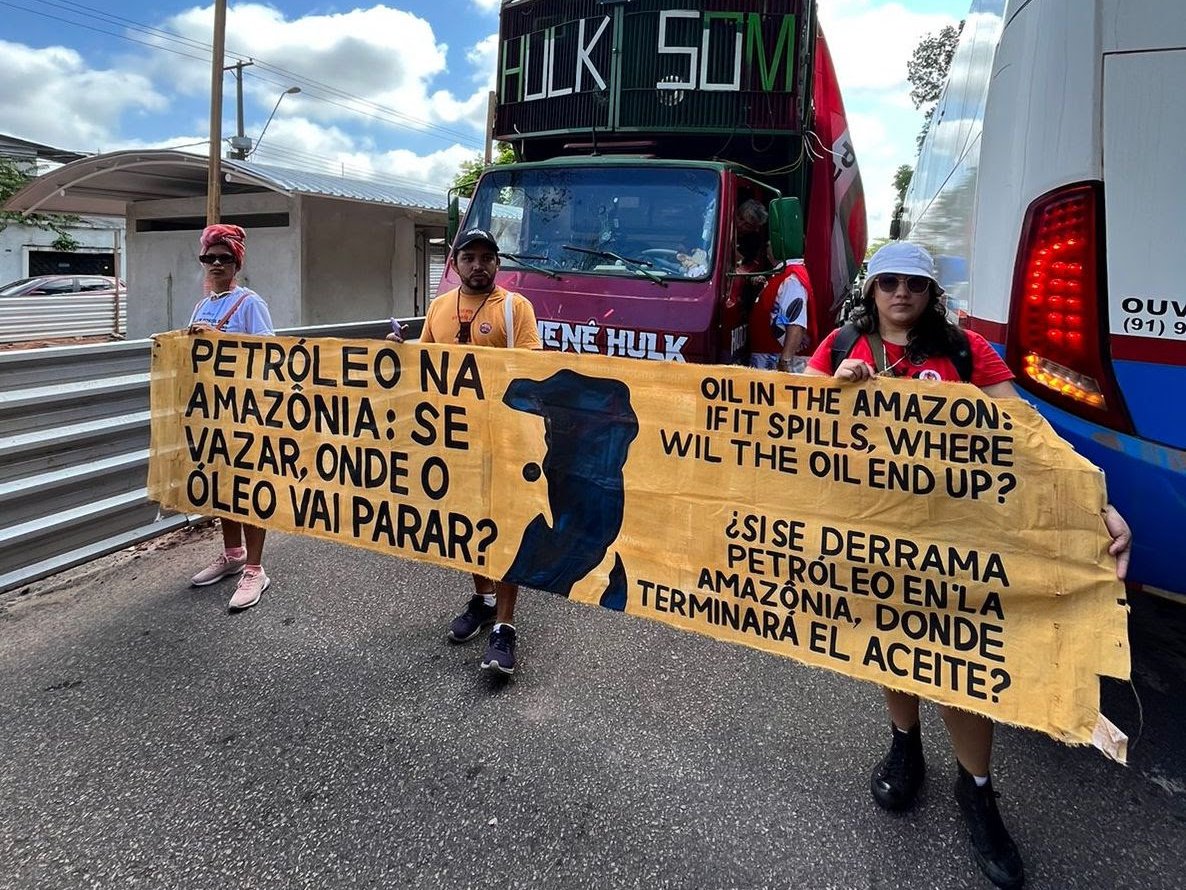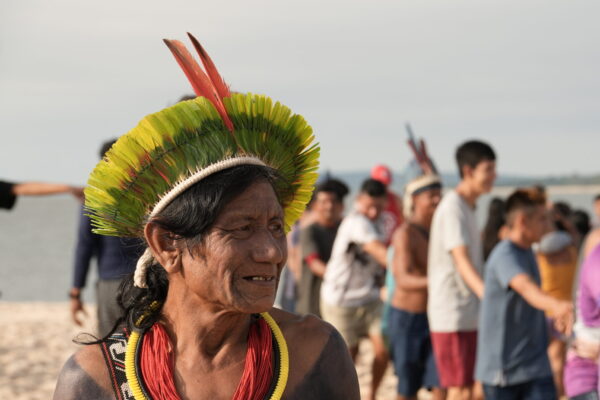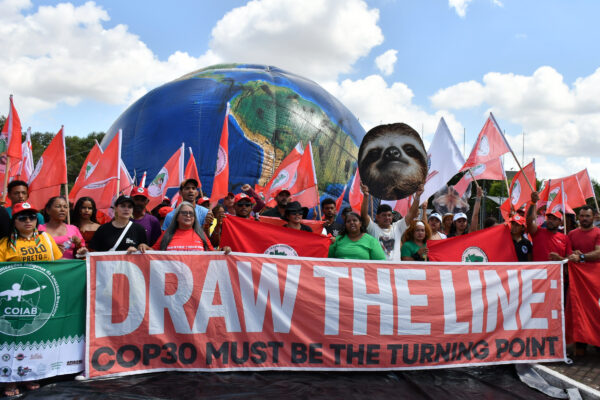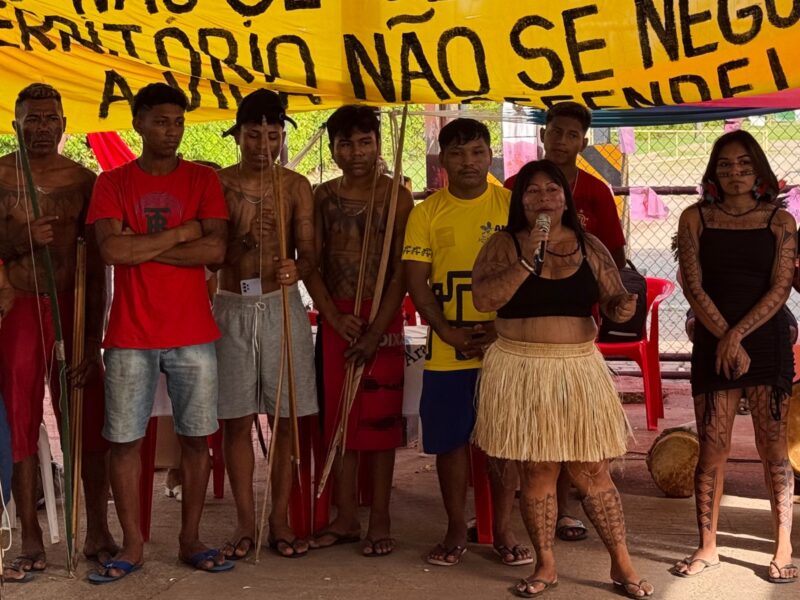The “Declaration of Belém” has emerged as the primary outcome of the Amazon Summit, an assembly of leaders from Brazil, Bolivia, Colombia, Ecuador, Guyana, Peru, Suriname, and Venezuela, held on August 8th and 9th in the Brazilian Amazon capital of Belém do Pará.
While ambitious efforts to strengthen Pan-Amazonian collaboration are positive, and the summit’s final text contains a series of good intentions, Amazon Watch considers that the document falls short in advancing critical protections for the rainforest and human rights. The declaration lacks common targets to eliminate deforestation and fails to establish moratoriums on the expansion of oil and mining exploration in the region, which are critical measures to respond to the climate emergency.
The declaration repeatedly references the urgent threat of the Amazon rainforest crossing a “point of no return” due to relentless deforestation and burning, beyond which scientists believe the rainforest could not sustain itself. However, it fails to establish much-anticipated common goals for Amazonian countries to reach zero deforestation by 2030, a critical benchmark for the future of the rainforest.
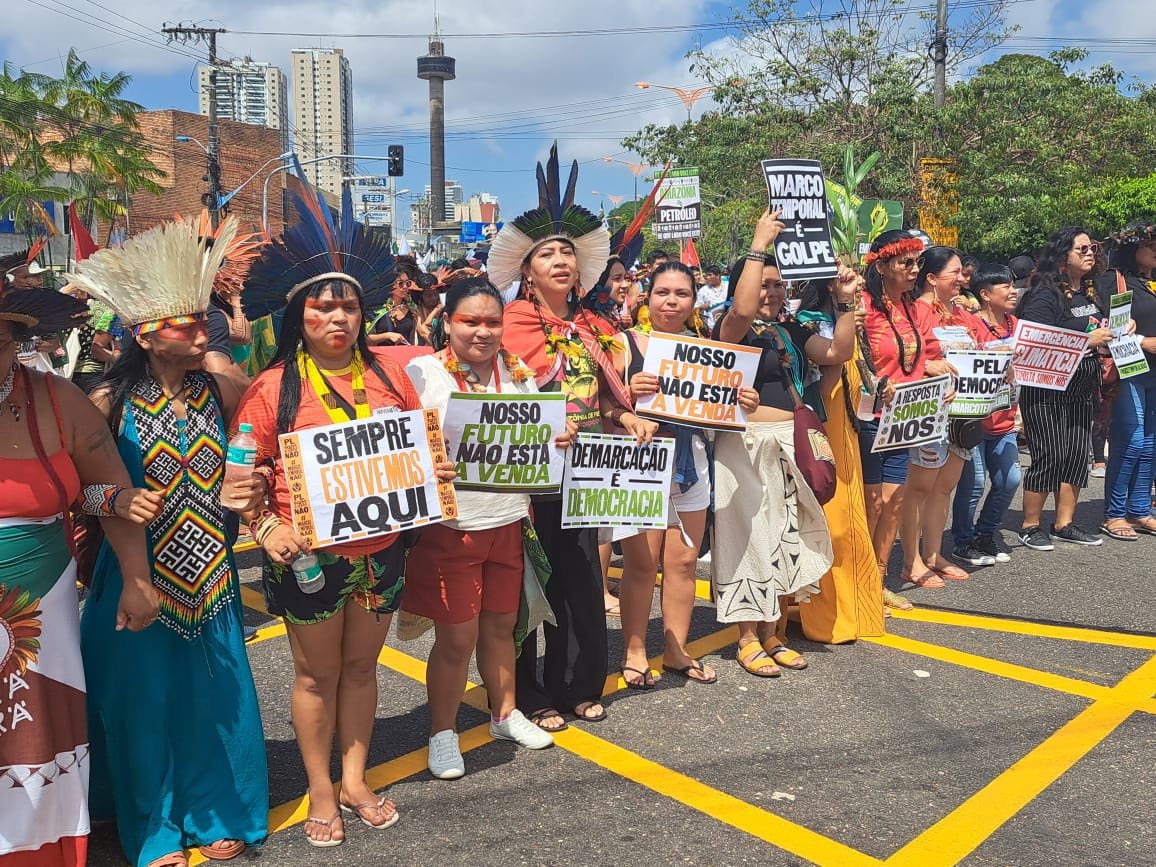
On the contrary, the document proposes to initiate a dialogue among the State Parties regarding the “sustainability of sectors such as mining and fossil fuels in the Amazon region, within the framework of the 2030 Agenda for Sustainable Development and their sovereign national policies.” Amazon Watch expresses its deep concern over this discourse of false solutions in the name of sustainability, as a genuine just transition requires the phase-out of oil, gas, and mining operations in the Amazon, as these activities inevitably lead to further deforestation, environmental degradation, and the violation of rights.
By explicitly falling short of barring the expansion of Amazon oil drilling, the declaration also contradicts the recommendations of the Intergovernmental Panel on Climate Change, the International Energy Agency, and the Scientific Panel on the Amazon which contend that the world will only avoid exceeding a 1.5C temperature increase by preventing the authorization of new oil operations.
In terms of strengthening indigenous territories and rights, the declaration affirms the right of Indigenous peoples to “full and effective possession” of their lands, either by “definition, delimitation, or demarcation and titling,” and acknowledges this “to be a fundamental condition for the preservation of biodiversity.” However, it fails to set out a clear pathway of concrete measures and specific goals that would effectively strengthen Indigenous territorial rights in the region.
The document also emphasizes the need to strengthen public policies, cooperation, and open dialogue about integrating sustainability standards in infrastructure projects in the Amazon, with particular attention to the rights of local communities to be consulted about such projects. While such language looks positive, it runs contrary to the current rush to build new export-oriented infrastructure in places like the Brazilian Amazon, such as the “Ferrogrão” mega-railway, the planning of which has systematically denied the rights of consultation to threatened Indigenous communities.
In conclusion, Amazon Watch considers that while the Amazon Summit’s final declaration includes a series of good intentions of state actors towards Pan-Amazonian cooperation to protect the biome, it maintains unacceptable ambiguity about the continuity of extractivist policies, and lacks a concrete plan to protect a keystone region for climatic stability. A truly just ecological transition cannot be led by the private sector and be export-oriented. Instead, it must be based on broad popular participation, ensuring that decision-making is shaped by the needs of forest peoples while advancing community-oriented alternatives to counter the current predatory economic model. Together with our Indigenous partners, we will continue advocating for a genuine political course correction that upholds fundamental environmental and human rights protections.


